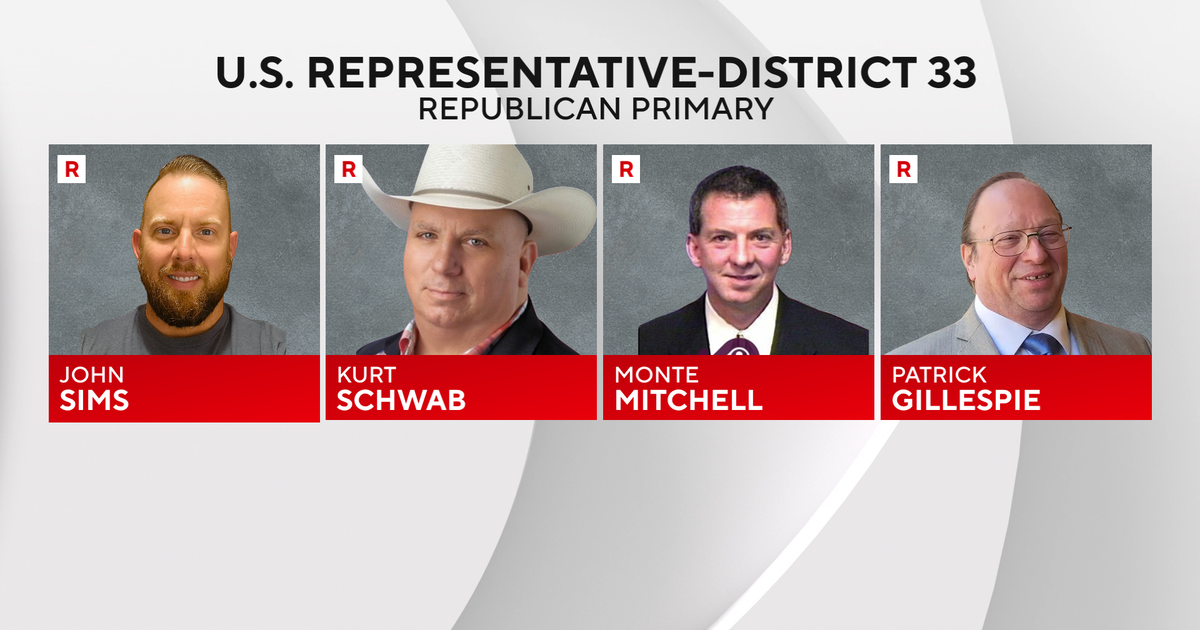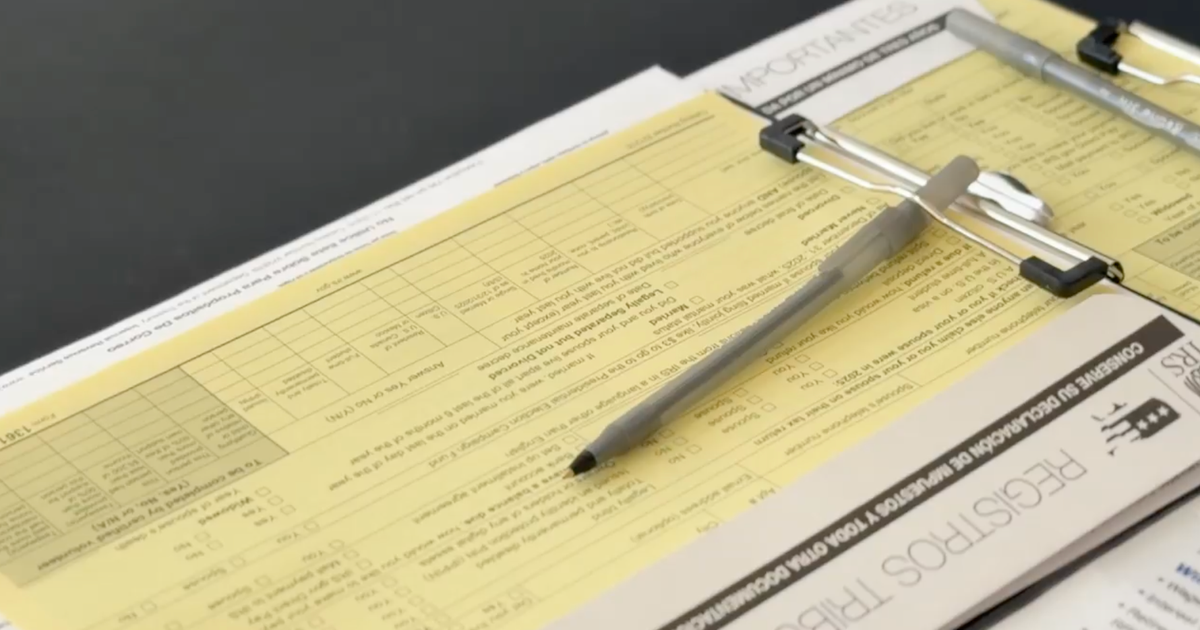Texas' Forgotten Redistricting Fight Set To Resume
AUSTIN, Texas (AP) — Texas Republicans have spent two years and at least $1 million fighting to restore voting maps drawn by the GOP-dominated Legislature that were declared illegal in court.
Now, suddenly, they're content with accepting as permanent the once hotly-disputed maps a federal court redrew to get the state through last year's elections.
Conservatives say they haven't given up on the issue. However, following an election cycle thrown into tumult by legal wrangling over redistricting maps, Republicans in the Legislature began working Tuesday with the goal of making court-drawn voting maps permanent ahead of the 2014 campaigns.
It's the only unfinished business Gov. Rick Perry has ordered in a special 30-day session — at least so far.
Lt. Gov. David Dewhurst, tea party legislators and other Republicans want the governor to demand that lawmakers also reconsider tighter abortion restrictions, more relaxed gun laws, and voucher plans that expand school choice for parents and students. All of those faltered during the 140-day regular session that ended Monday.
Now that he has called lawmakers back, Perry is widely expected to give them more to do than simply hammer out voting maps. But in brief comments to reporters Tuesday, the governor said he hasn't decided whether to add anything to the special session's agenda.
"I'm not going to anticipate anything until we've had a chance to look at all the pieces of legislation," he said "The (legislators) are here, and if there are some things that need to be tweaked, we'll address those as we can."
When pressed, he wouldn't elaborate: "I think it's a little bit premature, with the less than 24 hours since we've called the special, to be addressing whether we're going to be adding anything to the call or not."
Even if they only focus on redistricting, however, it will still be a dramatic departure for lawmakers that paid practically no attention to the issue during the regular five-month session — though many had expected taking it up this summer.
New political boundaries are drawn every decade based on new U.S. Census Bureau data. The 2010 count revealed a booming Texas population driven almost entirely by minorities, to the extent that 89 percent of the state's new residents were non-white.
Redistricting maps drawn by a then-GOP supermajority in 2011, however, created just one additional minority congressional seat. Minority rights groups say that typified discrimination that was also rampant in new state House and Senate boundaries.
Attorney General Greg Abbott, who like Perry and Dewhurst is himself a Republican, spent copious amounts of state time and money in court defending the Legislature's 2011 work.
A three-judge federal panel in San Antonio, however, ultimately threw out the Republican-drawn maps and made its own for last year's elections. On Wednesday, the court is scheduled to bring state and minority rights groups back together for the first time in months.
Now, though, state officials have shifted their position and would like to see the court-drawn maps adopted going forward so that future legal battles won't affect upcoming elections. Dewhurst said adopting the court-drawn map is not an acknowledgment that what the Republican majority passed in 2011 was flawed.
But the lieutenant governor conceded that the GOP risks getting less favorable maps and losing seats if Republicans don't take the one on the table now.
"It's possible. We could get a better map or a worse map," Dewhurst said. "Our adopting the three maps doesn't foreclose the Republicans to file suit and ask for improvements in the maps, or the Democrats to file suit and ask for improvements. It doesn't foreclose either of those two options."
Another incentive for Republicans is timing. Last year's drawn-out court battle delayed party primaries multiple times and wreaked havoc on races. Dewhurst, for example, had once held a commanding lead over then little-known tea party upstart Ted Cruz, but the pushed-back primary gave Cruz time to build more momentum and eventually win the U.S. Senate seat decisively.
Democrats and minority rights groups, meanwhile, believe that demographic trends entitle them to more seats, and are pushing for redrawn boundaries.
As state Sen. Kirk Watson, head of the Senate Democrats, put it, "Texas does not have an enviable history when it comes to these things."
Also Check Out:







